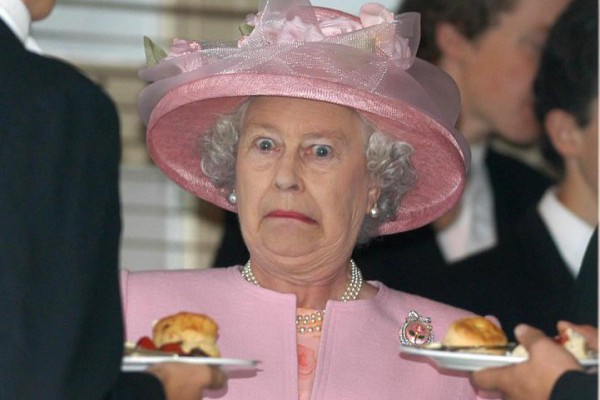Life, as it turns out, is too nasty, British and short to stay in the European Union.[1]
On Thursday, 23 June, 2016 Britain decided, through a referendum, to leave the EU. This likely marks the beginning of the end of the European Union—the political and economic landscape in Europe will change significantly in the years to come and in our lifetimes.
The development is, in one sense, inevitable. The European Union’s influence has been in steady but definite decline in the last many decades—Britain’s exit from the EU likely began when Britain opted out of the Euro for its own currency in 1992. Britain’s share in exports to the countries in EU has been steadily declining–and continues to sink–with its share of exports to non-EU countries making the bulk of the share now. Even in deciding the policy issues among the EU states, the EU has become a ‘pointless middleman’, and the policies, norms and standards are effectively decided by a plethora of international organisations and procedures. [2]
With the European Union steadily losing its sway, there is a lot of merit in the leave camp’s insistence on sovereignty—leaving the EU will allow Britain to enjoy a degree of autonomy and sovereignty in deciding its affairs, as any reasonable nation-state should possess.
Sovereignty is a virtue—a definite, unmistakable virtue. Power is better exercised when it is decentralised instead of resting in one centralised authority. And that moral fact alone lends tremendous force and credence to what transpired last Thursday. Sovereignty grants a certain moral legitimacy to the decisions that are made in a democracy, something that is missing when a significant chunk of the nation’s policies are decided by a bureaucracy far removed from the country and its people. And that is what the European Union essentially is—a massive bureaucracy, in Matt Kibbe’s words, run by “55,000 grey-suited faceless grey-suited bureaucrats, constantly putting out dictates, rules and regulations governing how vastly different communities across Europe have to live their lives.”
The assumption from the stay camp seems to be that the British people are incapable of deciding their own affairs. While sovereignty does not by itself guarantee optimal outcomes at all times and in all instances, it does guarantee a fairer decision making process. Indeed, as Dan Sanchez points out here, “political independence fosters economic independence.” Smaller states, which often lack significantly in resources, cannot afford to be economically isolated and possess a far greater incentive in having a liberal policy framework—one that encourages free trade and enterprise.
And it is not that the European Union has always produced the most optimal policies. In the initial few decades EU likely made sense, encouraging free trade and movement across its members. But it doesn’t make as much sense anymore. Consider, for instance, that the EU negotiates on the behalf of the entire Union—it Britain wants to have a free trade pact with India, it cannot do so unless all the other members are on board. Indeed, a free-trade agreement between Britain and India has precisely not worked out in the last 9 years because of this reason. Much has been said of the benefits of having access to a ‘single-market’ as part of being in the Union. It is worth noting that Britain can still secure access to the single market—3 countries are a part of the single market despite not being a part of the EU.
There is also the point about migration and immigration—many fear that free movement within EU will be significantly hampered. It is unclear at this point what precisely the impact on immigration would be. It might well be the case that Britain works out an arrangement with the EU to allow for free migration within the EU, and opts for a policy that will be to open to migration outside the EU states. Given that Britain has been has had extensive ties with the European Union in its many decades of association, it is very likely that they will be able to make some arrangements to allow for free movement and other benefits. As Ronald Smith has remarked, “Given Britain’s historic, open and global outlook, it is likely that a majority of the British would opt for a policy not far from where we are now.”
We can debate endlessly about the immediate economic and social consequences of Brexit with compelling arguments from both sides. But what matters more fundamentally are not the immediate consequences, but the long-term impact of the referendum. In my estimate, Britain has voted for a fairer and more inclusive set of institutions that will chart the course of the country toward a more prosperous future. Britain has voted for freedom and against centralisation of power, and that should give liberals cause for cheer.
I will end with a quote by F A Hayek, which captures the essence of it—
“Our faith in freedom does not rest on the foreseeable results in particular circumstances, but on the belief that it will, on balance, release more forces for the good than for the bad … Freedom granted only when it is known beforehand that its effects will be beneficial is not freedom.”
***
For a counter-view published on this blog, click here: Brexit: Brace Yourself, Winter is Coming by Archit Puri
[1] A play on Thomas Hobbes’ famous expression, ‘nasty, brutish and short’ describing the original state of mankind. Here is the entire quote: “No arts, no letters, no society; and which is worst of all, continual fear and danger of violent death; and the life of man, solitary, poor, nasty, brutish, and short.”
[2] The Liberal Case for ‘Leave’ by Ronald Smith
[3] Brexit Wins: Why That’s Great News for Europe, Too
[4] Today, I will Leave the EU (and enter the World)
(The author, Ujwal Batra, works in CCS Academy and is the editor of the blog Spontaneous Order. He loves ancient Greek philosophers, tea, reading, writing and poetry. You can reach him at ujwal@ccs.in)
Similar articles : https://spontaneousorder.in/freedom-of-movement/
Post Disclaimer
The opinions expressed in this essay are those of the authors. They do not purport to reflect the opinions or views of CCS.





